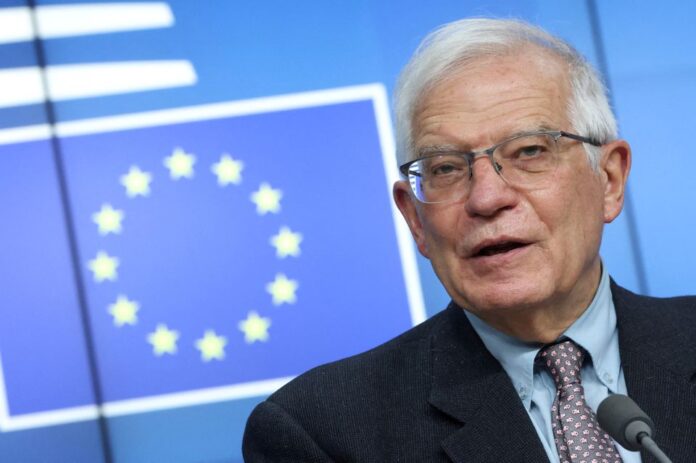After weeks of disagreements, EU foreign ministers on Monday agreed in principle to impose sanctions against Israeli settlers for attacking Palestinians in the West Bank and to add further sanctions on members of the Palestinian Islamist group Hamas, according to Euractiv.
This is the first time EU member states agreed to sanction violent Israeli settlers after the United States and the United Kingdom recently took similar steps.
While much international attention has focused on Hamas’ cross-border assault from Gaza and Israel’s subsequent war there, EU officials have also expressed increasing concern about rising violence against Palestinians in the West Bank.
“A solid compromise has been agreed at the working level and I hope that this will be continued until full adoption soon, but the political agreement is there,” the EU’s chief diplomat Josep Borrell told reporters after the meeting.
The restrictive measures have been in the works for months and were initially held up by a group of staunch Israel supporters, including Germany, the Czech Republic, Austria and Hungary.
Budapest had put up the strongest resistance to sanctions on violent settlers but recently changed its stance, EU diplomats said.
Borrell said member states that had previously blocked the proposal decided to abstain and the list of those impacted by the sanctions will pass for final approval.
Settlements in the West Bank are illegal under international law and are considered a major obstacle to achieving peace under the two-state solution.
The decision was part of a careful diplomatic choreography to coincide with fresh sanctions against Hamas, for which the bloc had created a new sanctions regime after the 7 October attack and considers a terrorist organisation.
It will impose the additional Hamas sanctions before sanctioning the Israeli settlers, diplomats said, adding the sequencing was important for EU members close to Israel who wanted to avoid the perception they were equating the two groups.
The struggle over the proposed sanctions reflects broader divisions between member states in the Middle East, with some strongly backing Israel while others lean more towards Palestine.
Speaking to reporters in Brussels, Borrell also said he would propose a “political orientation debate” about the future of the EU-Israel Association Agreement, which has been in force since 2000.
Last month, Spain and Ireland, two of the bloc’s most critical voices against Prime Minister Benjamin Netanyahu, had called for an “urgent review” of the agreement.
However, several EU diplomats said at least six EU member states—Germany, Italy, Austria, the Czech Republic, Bulgaria, and Hungary—spoke out on Monday against the review.
Borrell admitted that a formal Association Council with Israel would be “certainly complicated, ” as the step lacked “strong support.”
Instead, he said he would invite Israel’s Foreign Minister, Israel Katz, to the next meeting in Brussels, while an invitation should also be extended to the new Prime Minister of the Palestinian Authority, Mohammad Mustafa.


